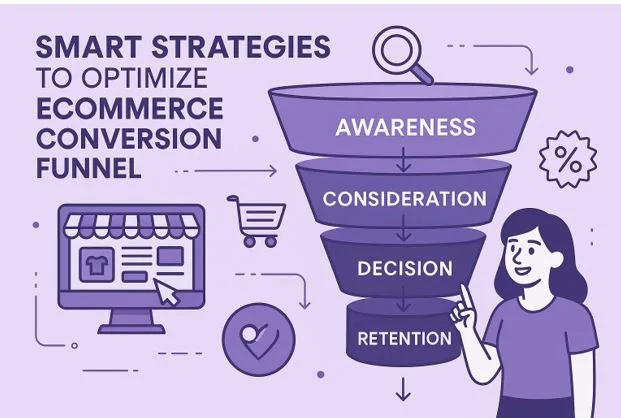Angular Developer for Hire: Your Front End Development Partner
Creating a fast, responsive, and reliable user experience isn’t just a nice-to-have anymore—it’s the foundation of any successful web application. Whether you are a startup launching your MVP or a growing tech company scaling its product suite, the front end is often where users make their first judgement. That’s why many businesses prioritize hiring top-tier talent when building their UI—specifically Angular developers.
But here’s the catch: front-end development isn’t just about pretty interfaces. It’s about building dynamic, data-driven experiences that work seamlessly across devices and browsers. With frameworks like Angular, companies can create powerful single-page applications (SPAs) that deliver speed and interactivity. So, when you decide to hire front end developers, especially those skilled in Angular, you are not just investing in code—you are investing in how users experience your product.
So, what exactly should you look for in an Angular developer? How do they contribute to product success? Let’s explore.
Why Angular Remains a Front-End Powerhouse in 2025
Angular is maintained by Google and has evolved into a robust framework that supports enterprise-grade applications. Unlike libraries that focus only on UI, Angular offers an all-in-one solution for routing, form handling, HTTP requests, testing, and state management.
When you hire front end developers with Angular experience, you are bringing in someone who can:
- Build SPAs with faster load times.
- Use TypeScript for better tooling and scalability.
- Follow strict component-based architecture.
- Maintain cleaner, modular codebases that are easier to test and scale.
Angular’s opinionated structure is an asset for tech companies aiming to maintain coding standards across teams. Plus, with features like Ivy rendering and Ahead-of-Time (AOT) compilation, apps load faster and perform more reliably, even on mobile networks.
Skills Checklist: What to Expect from a Strong Angular Developer
Not every developer familiar with JavaScript can handle Angular efficiently. Here’s a quick checklist of skills to expect:
- Proficiency in TypeScript – Angular is built using TypeScript, so fluency is a must.
- Experience with RxJS – Reactive programming is key to building performant applications.
- Familiarity with Angular CLI – It speeds up development and ensures consistent project structure.
- Understanding of component lifecycle – Crucial for handling DOM updates and data binding.
- Testing with Jasmine/Karma – A good developer writes unit tests that prevent bugs from slipping into production.
You should also check if they have experience working in Agile environments and can collaborate with back-end teams, product managers, and designers. Communication is just as important as code.
Real-World Scenarios Where Angular Excels
Angular is a strong choice for complex applications where performance and structure matter. For example:
- Admin dashboards for SaaS products.
- eCommerce portals that need dynamic filtering and product rendering.
- Healthcare platforms with high levels of interactivity and secure data flows.
- Education tools where modular components and custom directives are essential.
Many tech companies using Angular choose it for its maintainability. Once the application grows, it’s easier to onboard new developers without needing to untangle a spaghetti codebase.
Don’t Just Hire Coders—Hire Thinkers
A quality Angular developer doesn’t just code features—they solve problems. Whether it’s optimizing load time, reducing API response delays, or debugging component misfires, your ideal candidate is one who thinks ahead.
Some key traits to look for:
- They ask why, not just how.
- They suggest architectural improvements proactively.
- They stay updated with Angular releases (which happen frequently).
- They understand accessibility and can build inclusive UIs.
It’s worth noting that many tech companies have shifted to hiring developers who are product-focused—not just task-focused.
Looking to scale your product globally? Many fast-growing startups now hire Angular developers to deliver performance-driven interfaces without increasing back-end complexity. Angular’s tools allow developers to keep logic on the front end and reduce server load significantly.
Speed of Development Without Sacrificing Quality
One major reason why companies lean toward Angular is its tooling. The Angular CLI, for instance, automates repetitive tasks like file generation, testing, and compilation.
When your front-end team can:
- Spin up new modules and components with a single command.
- Use built-in best practices and linting tools.
- Integrate lazy-loading for better performance.
…they ship faster. Which is exactly what you want when timelines are tight and investor meetings are looming. And this is where Angular developers truly shine—they bring consistency without reinventing the wheel.
Collaboration with Back-End and Design Teams
Front-end developers don’t work in silos anymore. A good Angular developer collaborates with:
- Back-end engineers to handle RESTful APIs and error handling.
- UI/UX designers to translate wireframes into interactive components.
- QA teams to ensure front-end features meet acceptance criteria.
Make sure to test communication skills as much as technical knowledge when you hire. Ask questions like:
- “How do you handle a UI bug that originates from a back-end issue?”
- “What do you do when the design doesn’t fit the technical limitations?”
The answers will tell you how they think under pressure.
Many companies looking for typescript developers for hire choose Angular specialists because of the built-in TypeScript support. This ensures better code quality, more robust type-checking, and fewer production bugs—all critical for long-term maintainability.
The Remote Advantage: Hiring Angular Talent Globally
With more teams working remotely, hiring globally isn’t just a trend—it’s a necessity. You can find world-class Angular talent in Eastern Europe, India, Southeast Asia, and Latin America.
Benefits of remote Angular developers:
- Faster hiring cycles and onboarding.
- Lower development costs without compromising quality.
- Extended time zone coverage (great for 24/7 support or agile teams).
Just be sure to assess time management and communication tools. A solid Angular developer will know how to track tasks in Jira, collaborate via Slack, and attend stand-ups in any time zone.
Final Hiring Tip: Build a Test or Use a Vetting Platform
If you are not technical yourself, it can be hard to evaluate Angular skills. Here are two options:
- Build a small test project – Ask them to build a form with validation, route navigation, and API integration.
- Use vetted platforms – These pre-screen candidates and give you access to AI-vetted professionals.
If you are in a hurry to build or revamp your application, don’t spend weeks filtering resumes. Platforms can help you hire front end developers that are already tested, interviewed, and verified.
Conclusion: Your Angular Developer Is More Than a Coder
Hiring the right Angular developer isn’t just about technical ability—it’s about partnership. They help you turn ideas into interactive experiences. They protect your codebase from technical debt. They help your design and product teams move faster.
When you hire front end developers with Angular expertise, you are building your product’s face. The part users click, tap, and judge—within seconds.
And if you have been debating whether to make that hire soon, consider this: every delay in UI optimization, every lag in rendering, every broken interaction—is a user lost.
So don’t just fill a role. Find a front-end partner who helps you build fast, ship faster, and scale smarter.
Author Bio;
For more information and to discuss this content, please contact Colton Harris. He’s a highly experienced SEO expert with over 6 years of experience. His extensive knowledge and expertise in the field have enabled numerous businesses and individuals to enhance their online visibility and traffic. Harris creates and publishes content on business, technology, finance, marketing, and cryptocurrency trends. He’s passionate about sharing insights and helping others grow their online businesses.




